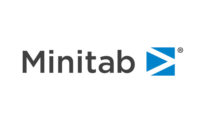Quality professionals are responsible for many important functions:
- Making sure products and services are
- properly operating
- Reducing waste
- Improving processes
- And much more
These are all functions that have been part of quality professionals’ roles for years. As we settle into the 21st century, the roles, while perhaps not changing, are certainly broadening—and broadening into areas that certainly wouldn’t have been anticipated even 20 years ago.
The past three ASQ Future of Quality studies (2005, 2008, and 2011) have indicated that social responsibility becomes a major source of change that is shaping the future of the quality professional.
The connection between quality and social responsibility might not be readily apparent. However, a closer look brings the connection into view. We need to acknowledge that, over the past decade, more companies have recognized the benefits of social and corporate responsibility to the top and bottom line. Some organizations are developing corporate responsibility plans around what John Elkington defined as the triple bottom line in his book Cannibals with Forks: the Triple Bottom Line of 21st Century Business (1997).
While this mindset is digging deep within the executive suite, experts who contributed to the 2011 ASQ Future of Quality emphasize quality professionals can easily address the need by becoming familiar with, and effectively communicating, the language of business. Quality professionals have a language, executives have another language. Translating quality and social responsibility into business language makes quality methodology and the professionals who use it daily all the more important to the organization.
ASQ has been researching the business performance impact on an organization connection between social responsibility and quality for six years. We are developing a number of case studies available in the Pathways publication. ASQ has a number of experts dedicated to making quality professionals aware of the connection and adept at using the tools.
“I see ASQ’s role in SR,” Dick Gould, member of the ASQ SR peer group, stated, “as introducing quality professionals to SR methods. As interest in SR grows within ASQ (interest groups), I see increased collaboration with SR professionals, helping them incorporate appropriate quality methods and tools in their SR programs.”
Quality professionals stand in a unique position to assist, consult, drive, administer, and integrate social and/or corporate responsibility. ASQ has been able to document some of these success stories through its Quality for LifeTM program.
ASQ’s Quality for Life program highlights stories about uses of quality in the community and throughout organizations. View or read one of these stories and you will see a passionate quality professional using what he or she has learned to make a difference. View or read a few of the stories and you will begin to understand the breadth and reach of quality in all walks of life. View and read all of the stories and you will know quality makes a difference in the lives of the people our colleagues have reached out to.
In addition to the Quality for Life program, ASQ awards the Spencer Hutchens Award for Social Responsibility. This year, Manu Vora, ASQ Fellow member, is the recipient of the award for “his commitment to social responsibility in founding, funding, and leading the Blind Foundation for India to serve more than 15 million blind people in India.” Vora assisted an association exceed its goals through the use of quality tools. It is this broadening of the typical use of quality that the quality experts of the ASQ Future of Quality study were addressing.
These are real stories of quality professionals making an impact through the adoption of SR methodologies. Social responsibility and quality do not need to be seen as completely different disciplines. The tools of social responsibility and quality can work together. Great results are achieved. Executives take notice.
The need for quality never stops. Nor does our responsibility to do good for our organizations, communities, and each other. Continue to use your unique and valuable skill set for good.


